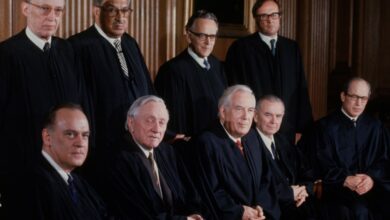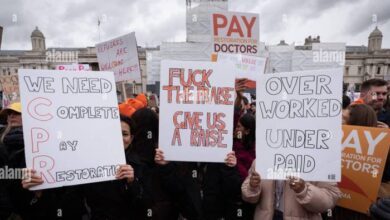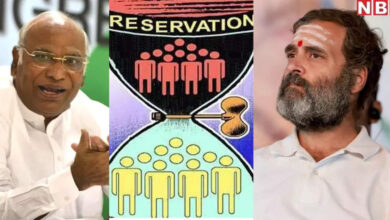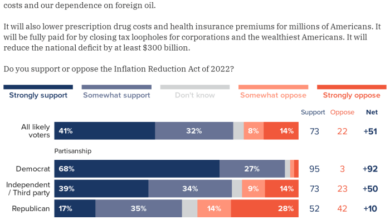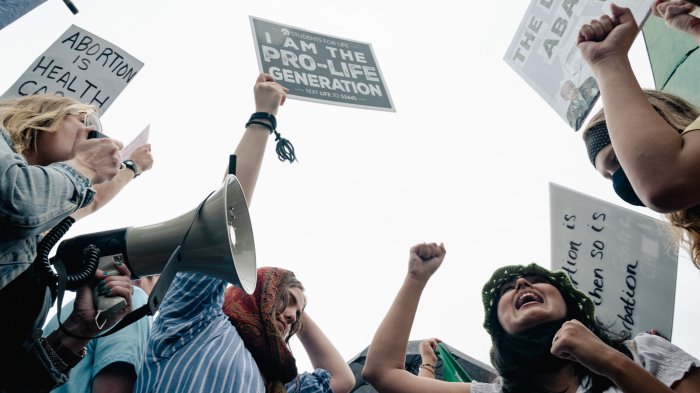
South Carolina House Approves Abortion Ban With Exceptions
South Carolina House approves abortion ban with exceptions, marking a significant step in the ongoing debate surrounding reproductive rights. This legislation, which has sparked both support and opposition, prohibits abortions after a certain point in pregnancy, but allows exceptions for cases of rape, incest, and when the mother’s life is in danger.
The bill’s passage has ignited a passionate discussion across the state, raising critical questions about women’s access to healthcare, the role of government in personal decisions, and the potential impact on the state’s healthcare system.
The ban has been met with mixed reactions. Supporters argue that it protects the sanctity of life and reflects the values of the majority of South Carolinians. They emphasize the importance of safeguarding unborn children and believe that the exceptions included in the ban are sufficient to address complex medical situations.
Opponents, however, contend that the ban is a direct attack on women’s rights and will disproportionately affect low-income women and women of color who may lack access to resources and information. They argue that the ban interferes with a woman’s right to make decisions about her own body and health.
The South Carolina House Abortion Ban: South Carolina House Approves Abortion Ban With Exceptions
The South Carolina House of Representatives has approved a bill that would ban abortions after the detection of fetal cardiac activity, which typically occurs around six weeks of pregnancy. This legislation, known as the “Fetal Heartbeat Bill,” has sparked intense debate and controversy within the state.
Exceptions to the Ban
The bill includes several exceptions to the ban, allowing abortions in cases of:
- When the mother’s life is in danger.
- When the mother’s physical health is in danger.
- In cases of rape or incest, with a police report or a signed affidavit.
The inclusion of these exceptions aims to address concerns about the bill’s potential impact on women’s health and safety, ensuring that medical professionals have the flexibility to provide necessary care in extreme circumstances.
Reasons for the Exceptions
The exceptions are included in the bill to acknowledge the complex medical and ethical considerations surrounding abortion. Proponents of the exceptions argue that they are necessary to safeguard the health and well-being of pregnant women in situations where carrying the pregnancy to term could pose a significant risk.
Arguments in Favor of the Ban, South carolina house approves abortion ban with exceptions
Supporters of the ban believe that it is essential to protect the lives of unborn children. They argue that fetal cardiac activity represents the beginning of human life and that abortion at this stage is morally wrong. They also contend that the ban will encourage women to seek alternative options, such as adoption.
Arguments Against the Ban
Opponents of the ban argue that it represents an infringement on women’s reproductive rights and access to healthcare. They contend that the ban will force women to seek unsafe abortions, particularly those who lack the financial resources to travel to other states for legal procedures.
The South Carolina House’s approval of a near-total abortion ban, with exceptions for rape, incest, and the life of the mother, is a stark reminder of the ongoing struggle for reproductive rights. This divisive issue is unfortunately mirrored in other areas of the country, like Springfield, Ohio, where schools are on high alert following false claims about Haitian immigrants that sparked bomb threats.
It’s a sobering reality that fear and misinformation can fuel violence and disrupt communities, just as much as legislative decisions can impact individual lives.
They also emphasize that the ban ignores the complexities of women’s lives and the wide range of reasons why they may choose abortion.
Impact of the Ban
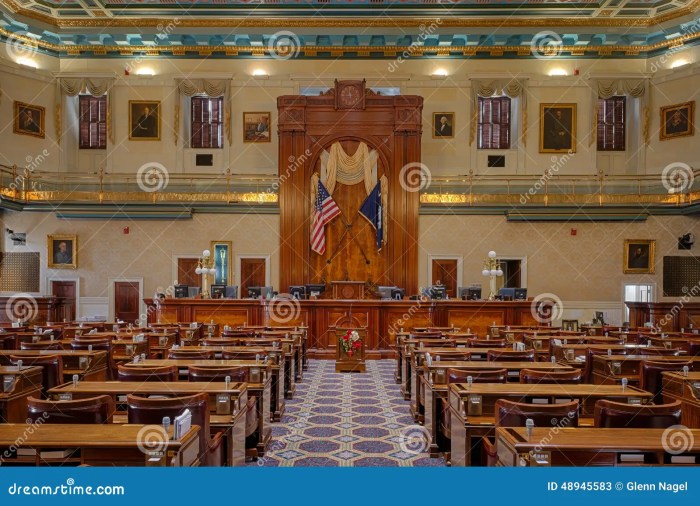
The South Carolina House’s approval of the abortion ban, with limited exceptions, carries significant implications for women’s healthcare, the state’s healthcare system, and the economy. This legislation raises various concerns, including potential limitations on access to essential medical services, strain on the healthcare infrastructure, and potential economic repercussions.
Impact on Women’s Access to Healthcare
The ban’s impact on women’s access to healthcare is a major concern. The restrictions imposed by the ban could lead to several negative consequences, particularly for women seeking abortion services.
- Increased Barriers to Access:The ban could make it significantly harder for women to access abortion services, forcing them to travel long distances to reach clinics in other states, which could be financially and logistically challenging.
- Increased Risk to Health:The ban could increase the risk to women’s health, as some might attempt unsafe or self-induced abortions due to lack of access to safe and legal options.
- Disproportionate Impact on Vulnerable Populations:The ban could disproportionately affect low-income women, women of color, and those living in rural areas, who may face greater challenges in accessing healthcare services.
Impact on the State’s Healthcare System
The ban could place a strain on the state’s healthcare system, potentially leading to an increase in complications and costs associated with pregnancy and childbirth.
- Increased Burden on Hospitals:The ban could lead to an increase in the number of women seeking prenatal and postpartum care, putting a strain on hospital resources.
- Higher Healthcare Costs:The ban could result in higher healthcare costs, as complications arising from unsafe abortions or delayed access to care could require more expensive treatment.
- Shortage of Healthcare Providers:The ban could discourage healthcare providers from practicing in South Carolina, fearing legal repercussions or ethical conflicts, potentially leading to a shortage of qualified professionals.
Economic Consequences of the Ban
The ban could have economic consequences for the state, impacting businesses, families, and the overall economy.
The South Carolina House’s approval of the abortion ban with exceptions is a significant development, sparking heated debate across the state. Meanwhile, the news cycle is also dominated by the ongoing dispute between ESPN and Disney, which has resulted in the blackout of these channels for millions of DIRECTV customers, as reported in this article.
This highlights the power of media giants in shaping public discourse, and the potential for these conflicts to impact viewers on a large scale. Ultimately, both the abortion ban and the ESPN/Disney dispute underscore the importance of staying informed about current events and their potential consequences.
- Job Losses and Economic Decline:The ban could lead to job losses in the healthcare sector, as clinics and hospitals may face financial challenges or be forced to close due to decreased demand for services.
- Increased Financial Burden on Families:The ban could impose significant financial burdens on families, particularly low-income families, as they struggle to afford travel expenses, childcare, and other costs associated with accessing healthcare services in other states.
- Negative Impact on Tourism:The ban could negatively impact tourism, as some travelers may choose to avoid visiting states with restrictive abortion laws.
Potential Legal Challenges to the Ban
The ban is likely to face legal challenges, with legal experts arguing that it may violate constitutional rights.
The South Carolina House’s approval of a near-total abortion ban, with exceptions only for rape, incest, and the life of the mother, has sparked intense debate. It’s a reminder that even in the face of such sensitive issues, we can still find moments of human connection and vulnerability.
It’s almost like how Sir Ian McKellen, a respected figure in the entertainment industry, felt ashamed and emotional after a recent stage fall, as reported in this article. McKellen’s experience highlights that even those we admire can face challenges, and their vulnerability can be a source of inspiration.
The debate surrounding the South Carolina abortion ban is a complex one, but ultimately it’s about the rights and choices of individuals, and how we can navigate these sensitive issues with compassion and understanding.
- Violation of Constitutional Rights:The ban could be challenged on the grounds that it violates women’s constitutional right to privacy, as established by the landmark Roe v. Wade decision.
- Equal Protection Clause:The ban could also be challenged on the basis of the Equal Protection Clause of the Fourteenth Amendment, which prohibits states from denying any person within their jurisdiction the equal protection of the laws.
- Undue Burden on Women’s Access to Healthcare:Legal challenges could argue that the ban imposes an undue burden on women’s access to healthcare, violating their fundamental right to make decisions about their own bodies.
Public Opinion and Debate
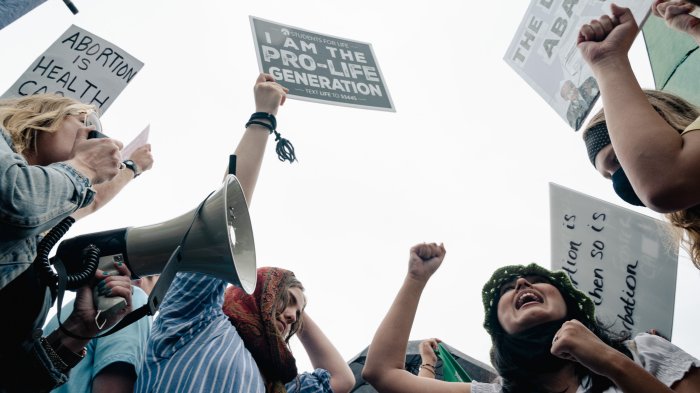
The South Carolina House’s approval of the abortion ban has sparked widespread public reaction, with diverse opinions emerging from various stakeholders. This debate is complex and multifaceted, with strong arguments presented on both sides.
Public Reaction to the Ban
Public opinion on the abortion ban is deeply divided. Proponents of the ban, often driven by religious beliefs and a desire to protect fetal life, celebrate its passage as a victory for the unborn. They view the ban as a necessary step to safeguard human life from the moment of conception.
Conversely, opponents of the ban, often citing concerns about women’s rights and access to healthcare, express deep disappointment and worry. They argue that the ban will disproportionately affect marginalized communities, including low-income women and women of color, and could lead to dangerous and potentially life-threatening outcomes.
Viewpoints of Various Stakeholders
The following table presents a summary of the viewpoints of various stakeholders involved in the debate:
| Stakeholder | Viewpoint |
|---|---|
| Politicians (Pro-ban) | Support the ban as a moral imperative to protect the unborn. They often emphasize the sanctity of life and the need to uphold traditional values. |
| Politicians (Anti-ban) | Oppose the ban as an infringement on women’s rights and access to healthcare. They advocate for a woman’s right to choose and emphasize the importance of bodily autonomy. |
| Medical Professionals (Pro-ban) | May believe that abortion is ethically wrong, even in cases of medical necessity. They may advocate for alternative solutions, such as adoption or palliative care. |
| Medical Professionals (Anti-ban) | Emphasize the importance of women’s health and access to safe and legal abortion care. They argue that the ban could have detrimental consequences for women’s health and well-being. |
| Religious Groups (Pro-ban) | Often hold strong beliefs against abortion, citing religious teachings that view abortion as a sin. They may support the ban as a reflection of their moral values. |
| Religious Groups (Anti-ban) | May emphasize compassion, empathy, and the need to support women in difficult situations. They may argue that the ban does not address the underlying social and economic factors that contribute to unwanted pregnancies. |
| Advocacy Organizations (Pro-ban) | Advocate for the protection of the unborn and promote policies that limit or ban abortion. They often focus on promoting adoption and providing resources for pregnant women. |
| Advocacy Organizations (Anti-ban) | Advocate for women’s reproductive rights and access to safe and legal abortion care. They often work to provide legal and financial assistance to women seeking abortion services. |
Visual Representation of Diverse Opinions
A visual representation of the diverse opinions on the ban could be a pie chart with different segments representing the viewpoints of different stakeholders. The size of each segment could reflect the relative prominence of each viewpoint in the public discourse.
For instance, a larger segment could represent the views of pro-ban politicians and religious groups, while a smaller segment could represent the views of anti-ban medical professionals and advocacy organizations.
Comparison to Other States
The South Carolina abortion ban, with its exceptions for rape, incest, and the life of the mother, aligns with a growing trend of restrictive abortion laws across the United States. Many states have enacted similar bans or are in the process of doing so, reflecting a national shift in the political landscape surrounding reproductive rights.
States with Similar Bans
Several states have enacted bans on abortion after a certain point in pregnancy, often mirroring the South Carolina law’s exceptions. For example, Texas’s “Heartbeat Bill” prohibits abortions after six weeks of pregnancy, while Alabama’s law bans abortions at any stage of pregnancy, with similar exceptions.
These bans are often referred to as “heartbeat bills” because they use the detection of fetal cardiac activity as the legal threshold for banning abortions.
National Context of the Abortion Debate
The abortion debate in the United States has become increasingly polarized, with strong opinions on both sides. The 2022 overturning of Roe v. Wade by the Supreme Court, which had previously guaranteed a constitutional right to abortion, has led to a resurgence of state-level abortion restrictions.
This has resulted in a patchwork of abortion laws across the country, with some states enacting strict bans and others maintaining access to abortion services.
Key Differences in Approaches to Abortion Legislation
States have taken diverse approaches to regulating abortion, with key differences in their laws.
- Gestational Limits:States vary significantly in the gestational limits they impose on abortions. Some states, like Texas, have implemented six-week bans, while others, like California, have enshrined abortion rights in their state constitutions.
- Exceptions:While many states include exceptions for rape, incest, and the life of the mother, the specifics of these exceptions can differ. Some states, for example, may require medical documentation or reporting requirements for these exceptions.
- Enforcement Mechanisms:States employ various mechanisms to enforce abortion restrictions. Some states rely on civil lawsuits, while others empower state officials to prosecute abortion providers.
Future Implications
The South Carolina abortion ban, with its limited exceptions, carries significant long-term implications for the state. Its impact extends beyond the immediate legal and medical landscape, influencing the state’s social fabric, economic development, and political climate.
Potential Long-Term Consequences
The ban’s long-term consequences are multifaceted, potentially affecting various aspects of life in South Carolina.
- Increased Maternal Mortality:The ban’s restrictive nature could lead to increased maternal mortality rates, particularly among low-income and minority women who may lack access to quality healthcare. Research suggests that states with more restrictive abortion laws experience higher maternal mortality rates.
For example, a study published in the journal Obstetrics & Gynecology found that states with bans on abortion after 20 weeks of pregnancy had a higher rate of maternal mortality than states with less restrictive laws.
- Economic Impact:The ban could impact the state’s economy by discouraging businesses and skilled professionals from relocating to South Carolina. This could hinder economic growth and development, particularly in sectors like healthcare and technology, which often prioritize access to reproductive healthcare for their employees.
- Social and Political Polarization:The ban could further polarize the state’s political and social landscape, intensifying existing divisions on the issue of abortion. This could lead to increased activism and protests, potentially impacting the state’s political discourse and policymaking processes.
Impact on Future Legislation
The South Carolina abortion ban could set a precedent for future legislation in the state, potentially paving the way for further restrictions on reproductive rights.
- Increased Restrictions on Contraception:The ban’s passage could embolden anti-abortion advocates to push for additional restrictions on access to contraception, including birth control and emergency contraception.
- Restrictions on LGBTQ+ Rights:The ban could be seen as a step toward limiting LGBTQ+ rights, particularly in areas like access to gender-affirming care.
- Increased Scrutiny of Women’s Health:The ban could lead to increased scrutiny of women’s health decisions, potentially impacting their ability to access other reproductive healthcare services like prenatal care and postpartum support.
Potential for Legal Challenges
The South Carolina abortion ban is likely to face legal challenges, potentially leading to court rulings that could shape the future of abortion access in the state.
- Constitutional Challenges:The ban’s constitutionality will likely be challenged in court, with arguments focusing on the right to privacy and the right to bodily autonomy as enshrined in the Fourteenth Amendment.
- Challenges Based on Medical Exceptions:The ban’s narrow exceptions, particularly those related to the health of the pregnant person, could be challenged as insufficient and medically unsound.
- Challenges Based on Access to Care:The ban could be challenged on the grounds that it creates an undue burden on access to abortion care, particularly for low-income women and women in rural areas.

